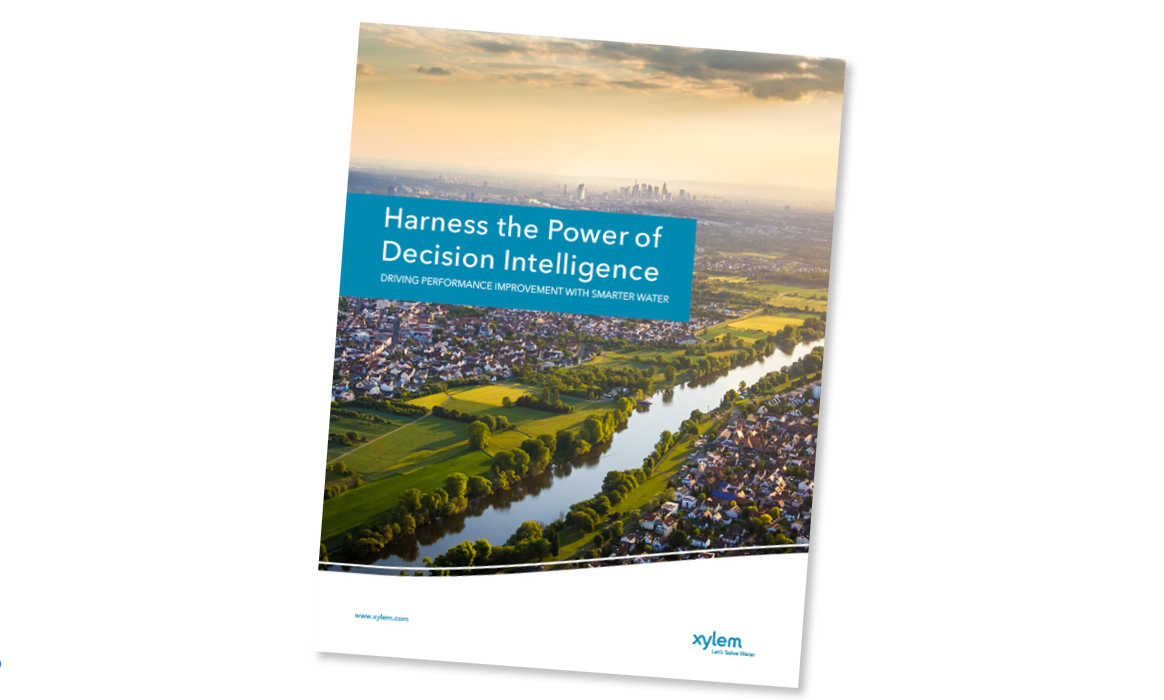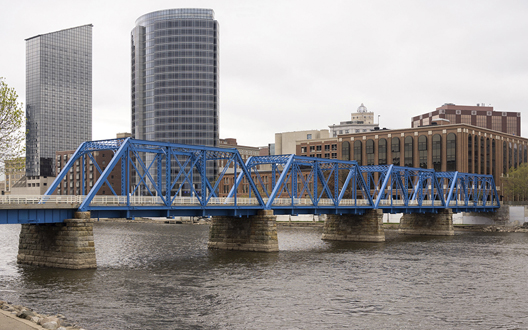Digital Solutions for a More Sustainable World
“Digital technologies are now being recognized as an imperative for sustainable water management strategies that enable water operators to build resilience.”
Albert Cho, Chief Strategy and Digital Officer at Xylem, shares why working in water is at the center of innovation, sustainability and social value, and why digitization is an imperative.
I grew up in Arizona – watching people sprinkle their lawns and golf courses in searing temperatures, as if water were an endless resource. Later, when I saw how many dams, canals and structures it took to make this possible, I realized this was far from the case.
That sowed seeds that germinated later. I started my professional life as a research assistant working on globalization and climate. Early on in my career, I had the opportunity to be part of the US government delegation to South Africa for the “Rio+10” World Summit on Sustainable Development. I got the bug: I knew that sustainability was what I wanted to work on and focused my graduate studies on business and renewable energy.
The more I learned, the more I realised the global community had to make a radical shift – not just telling people to invest in the future but making it a no-brainer. Those working to advance sustainability had to show that doing the wrong things costs more than doing what is right. It’s a classic win-win if you can make sustainability work for the bottom-line as well as the planet.
But to make sustainability a compelling, cost-effective business decision, we had to find and harness disruptive technologies. I remember working with Cisco and NASA where we used machine learning and data analytics to track deforestation from space. By using satellites and automated analytics to identify land use change, we could do in minutes what had previously taken about five years. That showed me the power of technology to make a powerful argument – and initiate change.
Not long afterward, I was working at the U.S. State Department and looking for private sector partners on a global infrastructure project and discovered Xylem. I realized this was a business aligned with my passions and ambitions – keen to evolve technologically, while adding private sector muscle to global sustainability. Seven years after joining the company, it’s still one of my best decisions.
Driving Progress through Data and Analytics
Xylem is becoming the water industry’s hub for digital innovation, sensors and new technical infrastructure, just like Cisco is for networks. Digitizing water is a massive opportunity – adding AI to digital control systems, using machine learning and virtual reality, and applying advanced data analytics to water management to create Decision Intelligence. This is achieving the smart, disruptive change so many have been looking for.
The stakes could not be higher. If we don’t do this – fast – water will become increasingly scarce, low quality and unaffordable. We know that’s often the case in emerging nations, but many people in developed countries like the U.S. don’t always have access to decent water and sanitation. Current infrastructure is getting older, just as climate change kicks in. So we need smarter technology, which can create water, energy and cost savings, while increasing sustainability.
A great example is Xylem Wastewater Network Optimization. This technology is a game changer, bringing the power of big data analytics to water and wastewater systems management – in real time. For example, Buffalo Sewer Authority (BSA) is leveraging this technology to make a profound difference for its community. By implementing a real time control program, they reduced Buffalo’s combined sewer overflow volume by a total of 1.48 billion gallons in 2019. The city of Grand Rapids, Michigan, utilized Xylem’s visualization and analytics tools to assess planned inflow and infiltration mitigation projects, and found many projects were not necessary. The City has reduced capital infrastructure program needs from over $1 billion to less than $50 million.
Navigating COVID-19 Challenges through Digital Solutions
Digital solutions have also played a critical role in helping water operators address the urgent challenges of COVID-19. Utilities that had made systematic investments in digitizing their processes and workflows prior to the pandemic adapted far more easily to COVID-19 challenges such as reduced workforces from illness and increased maintenance needs.
As we think beyond the pandemic, COVID-19 has caused many utility managers to rethink the opportunities and necessities of digitalization. Digital technologies - once perceived as luxuries - are now being recognized as an imperative for sustainable water management strategies that enable water operators to build operational and financial resilience.
The economic pressures from the pandemic are profound. The drinking water sector in the U.S., for example, is estimated to lose nearly $14 billion in annualized revenue as a result of the pandemic. Wastewater utilities in the U.S. have seen about a 20% average loss of revenue. This will require the industry to adopt new approaches and systemic change, digital decision support tools have the potential to remove pervasive inefficiency in capital programs, and to transform the sector in ways that will help water utilities and other water operators recover and emerge stronger out of this crisis.
And this is just the beginning. The opportunities to harness data and analytics to redefine water are limitless. By partnering with and for our customers, and leveraging game-changing technologies, we can shape a future where water is no longer a constraint to human health, economic development or the environment, and create a more sustainable world.
We have the power. Let’s use it!










